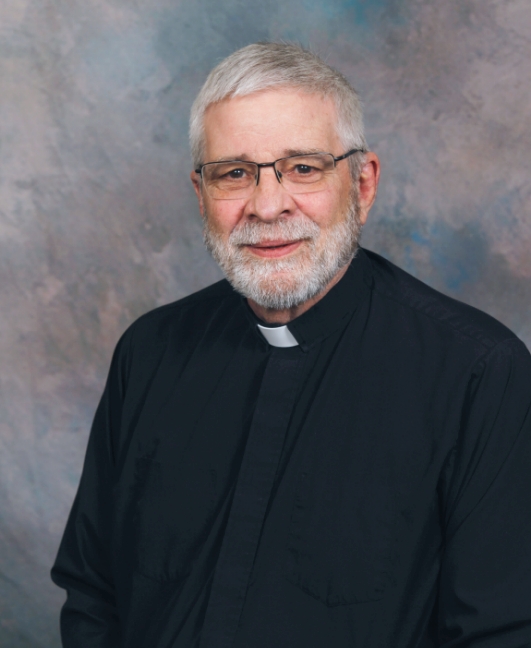Ruminations on Stewardship from Lent and Holy Week

by Timothy Teuscher
In the Large Catechism we read the following concerning the First Commandment: “Many a person thinks that he has God and everything he needs when he has money and possessions, in which he trusts and boasts so arrogantly and securely that he cares for no one. Surely, such a man has a god, Mammon by name, that is, money and possessions, on which he fixes his whole heart. It is the most common idol on earth. He who has money and possessions feels secure, happy, fearless, as though he were in the midst of Paradise. On the other hand, he who has nothing doubts and despairs as though he never heard of God” (LC Part One, 5-8).
During this past Lenten-tide, we heard a number of references to money and possessions. Being a penitential season, these were couched in terms of the Law—showing us thereby our sins when it comes to these First Article of the Creed gifts.
It began on Ash Wednesday with these words of Jesus: “Do not lay up for yourselves treasures on earth, where moth and rust destroy and where thieves break in and steal, but lay up for yourselves treasures in heaven, where neither moth nor rust destroys and where thieves do not break in and steal. For where your treasure is, there your heart will be also” (Matthew 6:19-21).
During this past Lenten-tide, we heard a number of references to money and possessions. Being a penitential season, these were couched in terms of the Law—showing us thereby our sins when it comes to these First Article of the Creed gifts. . . . But then came Holy Week and, fittingly, some positive examples of the stewardship of our possessions.
This was followed a few days later by the traditional Gospel Reading for the First Sunday in Lent—the account of our Lord’s temptation in the wilderness by the devil who said to Him: “If you are the Son of God, command this stone to become bread” (Luke 4:3). And do you remember Jesus’ answer? “Man shall not live by bread alone” (Luke 4:4).
On the Second Sunday in Lent we heard from the apostle Paul concerning those who are preoccupied with the things of this world: “Their end is destruction,” he said, “their god is their belly, and they glory in their shame, with minds set on earthly things. But our citizenship is in heaven, and from it we await a Saviour, the Lord Jesus Christ” (Philippians 3:19-20).

This was followed on the Third Sunday in Lent by the apostle recounting Israel’s disobedience during their forty years of wandering in the wilderness in these words: “Do not be idolaters as some of them were; as it is written, ‘The people sat down to eat and to drink and rose up to play’” (1 Corinthians 10:7).
The next Sunday we heard Jesus’ familiar parable of the prodigal son who “said to his father: ‘Give me the share of property that is coming to me.’ And he divided his property between them. Not many days later, the younger son gathered all he had and took a journey into a far country, and there he squandered his property in reckless living” (Luke 15:12-13).
On the Fifth Sunday in Lent we heard Jesus’ parable of the wicked tenants who, instead of giving the servant of the owner of the vineyard a portion of the fruit from the vineyard, “beat him and sent him away empty-handed” (Luke 20:10).
But then came Holy Week and, fittingly, some positive examples of the stewardship of our possessions. It began on Palm Sunday when “most of the crowd spread their cloaks on the road, and others cut branches from the trees and spread them on the road. And the crowds that went before [Jesus] and that followed Him were shouting, ‘Hosanna to the Son of David! Blessed is He who comes in the name of the Lord! Hosanna in the highest!’” (Matthew 21:8-9).
On Holy or Maundy Thursday we heard Jesus’ words to the disciples after He washed their feet in the upper room: “I have given you an example, that you should do just as I have done to you” (John 13:15).
The next day, Good Friday, the account of our Lord’s crucifixion concluded with Joseph of Arimathea, along with Nicodemus, taking the body of Jesus down from the cross, wrapping it in “linen cloths with the spices” (John 19:40), and laying Him in Joseph’s family tomb.
 And then, the Gospel for Easter Day began with Mary Magdalene, Joanna, Mary the mother of James, and the other women with them going to Jesus’ tomb early in the morning, “taking the spices they had prepared” (Luke 24:1).
And then, the Gospel for Easter Day began with Mary Magdalene, Joanna, Mary the mother of James, and the other women with them going to Jesus’ tomb early in the morning, “taking the spices they had prepared” (Luke 24:1).
What are we to make of these readings that refer in one way or another to the money and possessions that God has given to us? Just this, as Luther says: “God does not want to lavish His blessings on us for any other purpose than His glory, the praise of the Giver, and the welfare of His church.”
—————
Rev. Dr. Timothy Teuscher is President of Lutheran Church–Canada (LCC).




